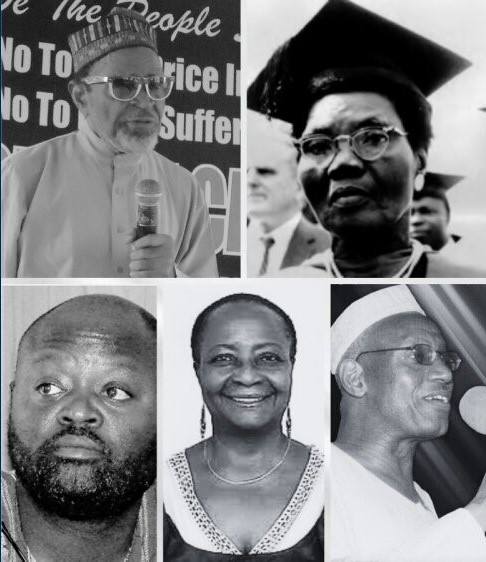There is now an opportunity for students/researchers of the radical movement (and moments too?) in Nigeria. Such students/researchers from the social sciences can submit a proposal which if endorsed will be funded to write a peer-reviewed journal article on key themes of the movement.
As listed by the CDD-West Africa which is masterminding the radical movement documentation project, the areas include political theory, historical, historiographical, and sociological realms of the radical movements during military regimes between 1967 and 1999. The CDD-WA is also keen on cross-cutting areas of emphasis which may include Northern Nigeria, women’s contributions, guerrilla movements, discourse in popular media, and the intellectual thought of individuals and collectives.
Those who submit the most promising proposals in the eyes of the assessors will receive 500 Euros to underwrite the project as well as online access to existing versions of digital archives containing documents and memorabilia collected by Yusufu Bala Usman, Ola Oni, Baba Omojola, and Edwin & Bene Madunagu, among others.
Institut Français de Recherche en Afrique/French Institute for Research in Africa (IFRA) is funding the project which is now moving towards cultivating academic research around the archives the creation of which has been a work-in progress for quite some time. Researchers working in the social sciences and humanities, particularly emerging scholars (including current graduate students at MA- or PhD-level), recent PhD graduates, early career academics and independent researchers constitute the target group encouraged to apply.
The deadline for submission of the proposal is May 1st, 2024 while successful applicants will be contacted by May 10th, 2024. Those who scale through have a June, 28th, 2024 deadline to submit a draft of the research paper.
The CDD-WA asks those submitting a research proposal to note what they are required to submit. The checklist includes a research proposal of between 1000 – 1500 words and which presents the prospective research aim and overarching questions, a literature review that shows how the research project contributes to the state of knowledge in his or her field, methodology (including the conceptual framework and what archives and what sections or material the researcher will be looking at). The last item in this subset is the preliminary schedule. Next is a Curriculum Vitae of about one to two pages and then a 100-word bio (to be included in the body of the prospective researcher’s email).
Completed applications (or follow up questions as the case might be), specifying the name of the grant in the subject line, should be emailed to cddabv@cddwestafrica.org and copied to shusaini@cddwestafrica.org




























